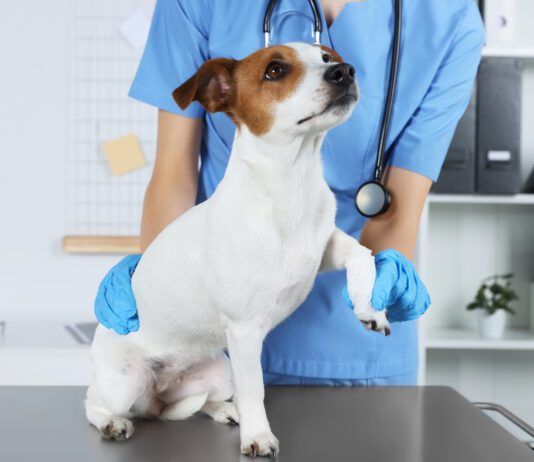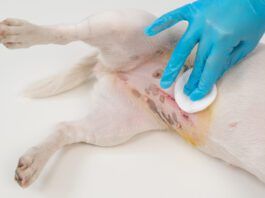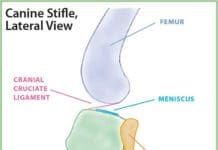Tea Tree Oil Diffusers Are Toxic to Dogs
While some essential oils can benefit dogs, others are extremely dangerous - especially when used in their concentrated form. Tea tree oil demands extra caution around dogs, cats and small children. Although exposure to any essential oil is generally most concentrated when it directly contacts skin, tea tree oil diffusers and liquid potpourri present specific health concerns to dogs. These items release essential oils like tea tree continually into the air, risking exposure by inhalation.
Dog Stung By A Bee? Here’s How to Treat It
Hives, wheals, and welts are a moderate reaction to stings. Just like their human counterparts, dogs who have been stung can break out in unsightly hives. These are usually very itchy and uncomfortable. The first sign often noticed is the dog rubbing along furniture or scratching at the face and eyes. The hives may manifest as bright red streaks or lumps all over the body or be confined to a single place.
Liver Disease in Dogs
Signs of liver disease can include lethargy, decreased appetite, vomiting, diarrhea, bruising of the skin (small patches of bruising are called petechiae; larger patches are called ecchymoses), abdominal distention, weakness, and a yellow tint to the skin and gums (called jaundice or icterus).
Dog Hiccups
Dogs get hiccups. Who knew, right? It turns out that this is a fairly common occurrence, especially in puppies. But what causes dog hiccups, and are there ever cases in which they actually indicate a medical problem?
Distemper in Dogs
The clinical signs of distemper in dogs occur in stages and in three main body systems: the upper respiratory tract, the gastrointestinal tract, and the central nervous system. Initially, a dog may show signs consistent with upper respiratory disease: coughing, sneezing, high fever, lethargy, and nasal and eye discharge.
Torn Cruciate Ligaments in Dogs
A cranial cruciate ligament injury in a young, healthy dog is typically an athletic injury. In older dogs, it is usually an injury of chronic wear and tear. This explains why its so common for a dog who has damaged the CrCL on one side to then tear it on the other side. When you take one back leg out of commission, the work load shifts to the other, increasing the strain on the ligaments of the good leg.
Dog Limping: Possible Causes and Treatments
Dogs are usually active, enthusiastic household members, and as a result, they are prone to injuries. These can range from muscle strains to broken bones to systemic infections. When your dog is limping it's time to consult with a veterinarian. They may have you rest your dog and monitor at home for 24 - 48 hours depending on the severity of the problem. If the limp doesn't improve or worsens, they will likely have you come in for an appointment.
Is Frequent Urination in Dogs Normal?
If the symptoms your dog exhibits are straining to urinate, frequent, small accidents or repeated, small puddles when going outdoors, a likely cause is a lower urinary tract issue such as a bladder infection, bladder stones, or cystitis (bladder inflammation). Diagnostics will include a urine sample, urine culture, and possibly xrays of the bladder. Some breeds such as Schnauzers are more prone to certain lower urinary tract issues like bladder stones.
Don’t Skip the Stool Sample
A fresh stool sample is no one's favorite to collect, but it's important for a lot of reasons.Parasites are not the only thing that can be seen on a fecal check. Whether done as part of a routine screen or when a pet is sick, poop contains a lot of good information.
Veterinary Visits: It’s Important to Be There for Your Dog
I am going to be blunt; I have a strong opinion about this. There is absolutely no chance that I would allow any of my dogs to be taken into the back" at a veterinary clinic for anything short of surgery. Our new vet does go above and beyond with her clinic's degree of owner involvement
Diagnostic Health Testing for Dogs
Basic screening tests, in combination with regular physical exams, are foundation components of a good health care program. In younger dogs, routine tests are done to establish normal baselines, exclude congenital problems, and/or ensure safety for anesthesia. In older pets, these tests often provide the first indication of possible health problems.
Physical Exams for Senior Dogs
There are a number of ways that we can stay on top of health issues that creep up on our dogs with age. Annual veterinary visits are a staple in every healthy pet's life. A comprehensive physical exam from nose to tail is step one in picking up clues to underlying concerns at every age, but it becomes even more important in the senior years.


















